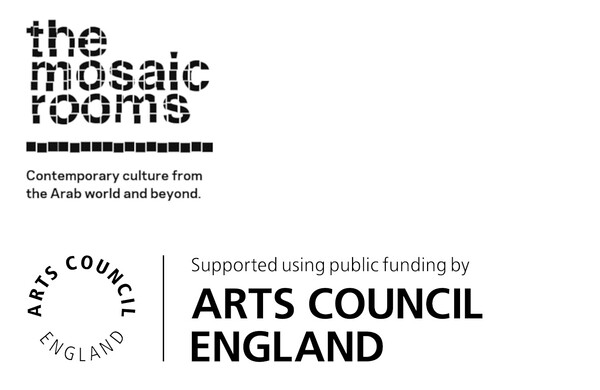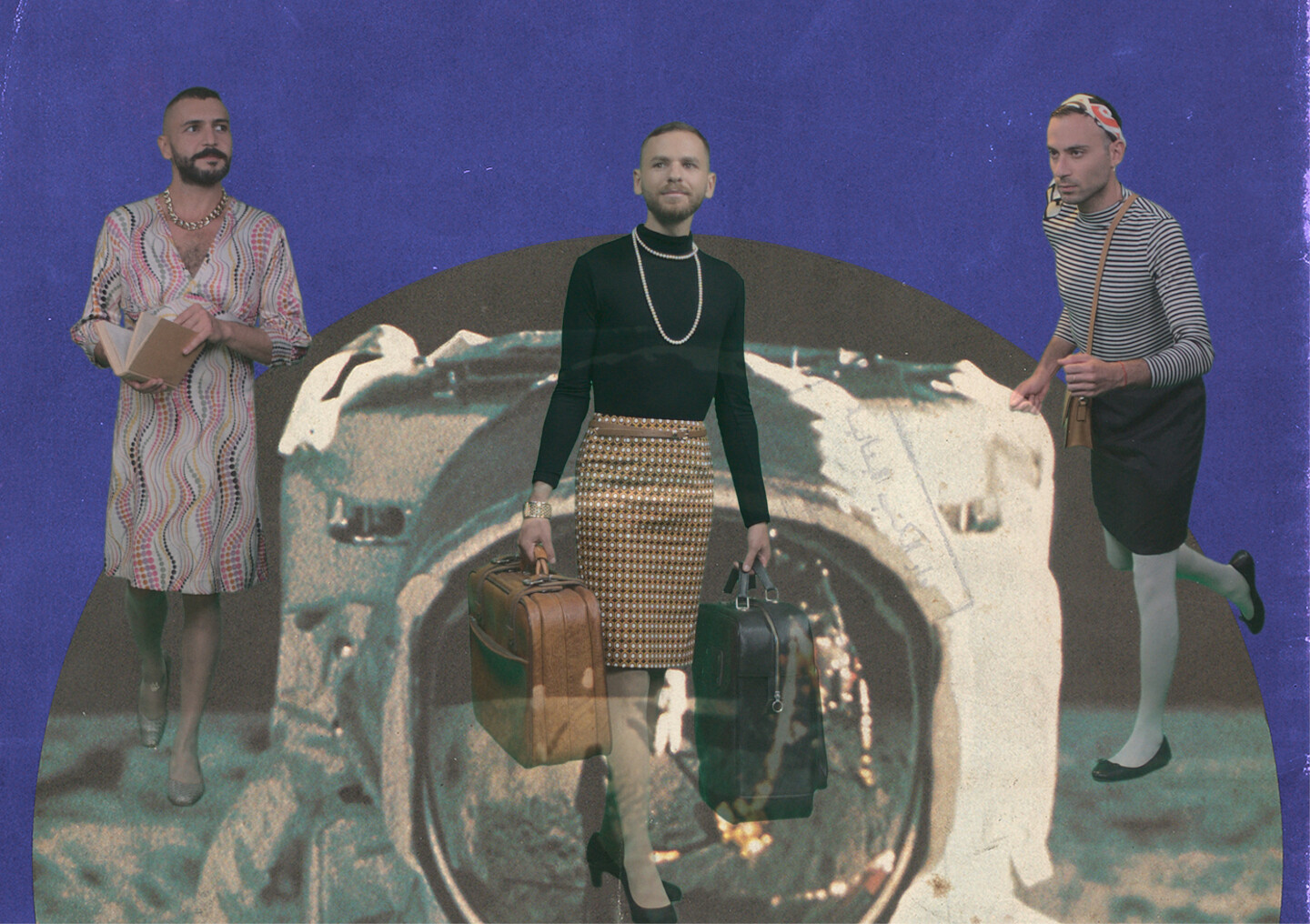When I see the future, I close my eyes
May 18–June 6, 2021
Borrowed Faces: Future Recall
June 25–September 26, 2021
Stateless Heritage
October 12, 2021–January 30, 2022
226 Cromwell Road
London SW5 0SW
UK
Hours: Tuesday–Sunday 11am–6pm
T +44 73709990
info@mosaicrooms.org
Heba Y Amin: When I see the future, I close my eyes
May 18–June 6, 2021
The Mosaic Rooms reopens the first UK solo exhibition of artist Heba Y. Amin. The exhibition showcases the latest iterations of three bodies of work by the artist: Project Speak2Tweet, The General’s Stork, and Operation Sunken Sea. All stem from real-life subjects, including the new technological formats that were instrumental in Egypt’s revolution, a migratory bird turned international “spy” and, finally, a proposal to “solve” the migration crisis by draining the Mediterranean Sea.
Amin investigates how politics and events in the Middle East relate to global concerns, challenging colonialist narratives of conquest and control, while also exploring the totalitarian exploitation of technology. Her research-based multimedia works take speculative, and sometimes satirical, approaches to these ideas. Alongside performances and interventions, Amin’s research integrates film, photography, and digital technology to think through present-day issues and the potential significance of occluded stories and previously overlooked archive material.
The exhibition is curated by Anthony Downey.
Fehras Publishing Practices: Borrowed Faces: Future Recall
June 25–September 26, 2021
Borrowed Faces: Future Recall looks at the Cold War and its effect on cultural practices in the Eastern Mediterranean and North Africa region, which generated one of the most fertile periods in the history of Arab culture and publishing. Artists Sami Rustom, Omar Nicolas, and Kenan Darwich have been working together as Fehras Publishing Practices since 2015. Their work playfully explores significant cultural moments in the history of Arab publishing through performance, installation and publications, skilfully blending fiction and reality. The exhibition unpicks the political and cultural policies of the United States and the Soviet Union during the Cold War, investigating the networks and projects funded by the rival superpowers. The exhibition is part of the 2021 Shubbak Festival.
The exhibition is presented in three distinct sections. The photonovel Borrowed Faces 1 follows the journeys of three women (performed by the collective) in 1960s Beirut as they interact with historical figures and institutions of the Cold War. Another section presents the collective’s archives of books, magazines, letters and photographs including research on London based publications and thinkers in the 1960s, when the city became a meeting point for Arab intellectuals. Finally, a new large-scale collage work presents a reimagining of the archive for the Congress for Cultural Freedom, the anti-communist cultural organisation later discovered to have been funded by the CIA. Through it, Fehras explore the role of institutional archiving in defining knowledge hierarchies and classifying facts. The exhibition is delivered in partnership with Delfina Foundation, The Mosaic Rooms, and Shubbak Festival, with support from the Goethe-Institut London. The research of Borrowed Faces is facilitated with the support from Berlin Artistic Research Grant Programme for 2020/21.
DAAR (Decolonizing Architecture Art Research): Stateless Heritage
October 12, 2021–January 30, 2022
DAAR (Decolonizing Architecture Art Research) present Stateless Heritage, a new chapter of their Refugee Heritage project. The exhibition attempts to reframe refugee history and discourse beyond the narrative of “humanitarian crises,” of victimhood, suffering, and humiliation. DAAR propose exile as a radical perspective by which political, spatial and social structures can be experienced beyond the nation state.
The project aspires to destabilize dominant Western conceptions of heritage, introducing a richer understanding, suggesting the potential to abandon the concept altogether. Refugee Heritage focuses on Dheisheh refugee camp in Palestine, however DAAR believe the approach could extend to other camps, and include other forms of subjugated heritage, introducing a new perspective on notions of restitution, repair and return.
DAAR is an architectural collective that combines conceptual speculations and pragmatic spatial interventions, discourse and collective learning. In this new chapter of Refugee Heritage, DAAR will create a live installation, a space of generosity and conviviality activated by talks and events hosted by community members, artists, activists and thinkers. At a time when the fundamental right to claim asylum is under threat internationally and in the UK it will respond directly to issues in the exhibition, and to migrant and refugee justice in the UK.


